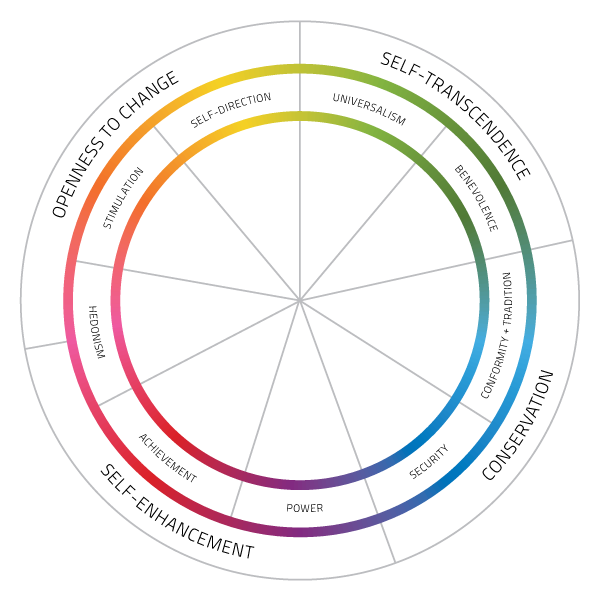Common Cause believes it is important to tackle complex sustainability problems and democracy in a mutually supportive way by fostering “intrinsic” values that support self-acceptance, care for others and concerns for the natural world, rather than ones that reinforce, for example, wealth accumulation or status.
It believes that values and the language or “frames” used to express them are important in creating a more compassionate and future-oriented world, something that needs to be borne in mind by politicians and campaigners.

Schwartz, S.H. (1992). Universals in the content and structure of values: theoretical advances and empirical tests in 20 countries. In M.P. Zanna, ed. Advances in Experimental Social Psychology, 25. Orlando: Academic Press, pp. 1-65.
It has produced a Handbook that explains why and how values matter, and how they can change, as well as a series of reports on different topics such as ‘Limitations of Environmental Campaigning based on Values for Money, Image and Status’, and ‘Valuing Equality’.
The above diagram, devised by Shalom Schwartz in 1992, forms the basis of Common Cause’s thinking and is often called the Value Circumplex.



